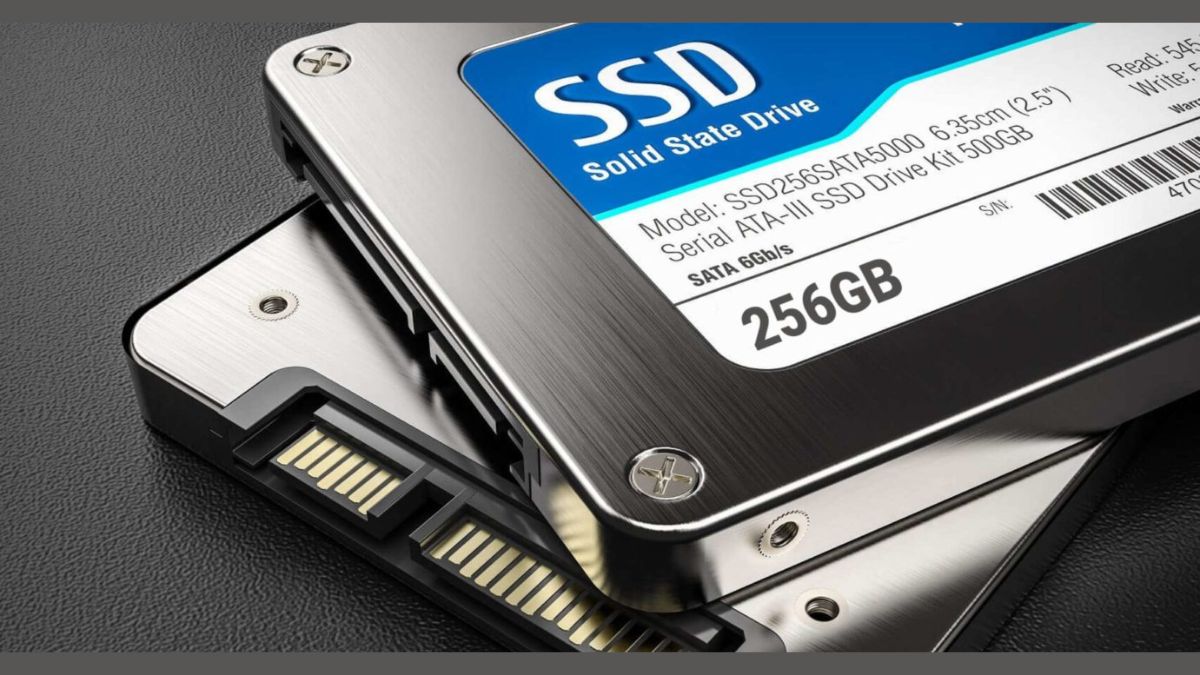Thinking of upgrading your laptop or desktop in 2025? A 256GB SSD is a practical and affordable choice for users looking to boost system speed and performance. In this 256GB SSD upgrade guide, we’ll explain everything beginners need to know before making the switch—from types of SSDs and performance comparisons to compatibility and brand recommendations.
What Is an SSD and Why Is It Better Than an HDD?
A Solid State Drive (SSD) stores data using flash memory, unlike traditional Hard Disk Drives (HDDs) that use spinning disks. The result is:
- Faster boot times and file transfers
- Lower power consumption
- Improved durability with no moving parts
- Silent operation
SSDs are now the standard for modern computing, offering a significant upgrade over HDDs in speed and reliability.
Why Choose a 256GB SSD?
A 256GB SSD strikes a balance between affordability and functionality. It is ideal for:
- Students and office users
- Light gamers
- Anyone upgrading from a hard drive
- Laptops or desktops used for browsing, email, and productivity
While it may not offer large storage, it delivers exceptional performance improvements for daily use.
Types of 256GB SSDs
SATA SSD (2.5”)
- Speed: Up to 550 MB/s
- Interface: SATA III
- Best For: Older laptops and desktops
- Advantage: Widely compatible and cost-effective
NVMe SSD (M.2)
- Speed: 1000–3500 MB/s (Gen 3 or Gen 4)
- Interface: PCIe (via M.2 slot)
- Best For: Newer laptops and gaming PCs
- Advantage: High-speed data transfer and compact form factor
External SSD (USB)
- Speed: 400–1000 MB/s
- Interface: USB 3.1 or Type-C
- Best For: Portable use and backups
- Advantage: Plug-and-play convenience
READ MORE: 256GB SSD Price in Pakistan – Best Deals & Specs
Is 256GB SSD Storage Enough?
That depends on your usage. Here’s a quick comparison:
| User Type | Is 256GB Enough? |
|---|---|
| Windows + Office Apps | Yes |
| Light Gaming | Yes (1–2 games max) |
| Photo Editing | Limited |
| Video Editing | No, consider 1TB |
| Students/Office Users | Ideal Choice |
For most basic tasks, 256GB is sufficient, especially if you use cloud storage or external drives.
SSD vs HDD Performance
| Task | HDD (1TB) | SSD (256GB) |
|---|---|---|
| Boot Time | 45–60 seconds | 10–15 seconds |
| App Launch Speed | 5–10 seconds | 1–2 seconds |
| File Transfer (1GB) | 80–100 MB/s | 400–500 MB/s |
| Gaming Load Time | 30–40% slower | Up to 40% faster |
A 256GB SSD upgrade dramatically improves system responsiveness, especially for older systems still running on HDDs.
Top 256GB SSD Brands in Pakistan (2025)
| Brand | Model | Type | Warranty |
|---|---|---|---|
| Kingston | A400 | SATA | 3 years |
| WD | Blue SN570 | NVMe | 5 years |
| Samsung | 980 | NVMe | 5 years |
| Crucial | MX500 | SATA | 5 years |
| Lexar | NM620 | NVMe | 3–5 years |
Choose SSDs from trusted brands to ensure better reliability, firmware support, and long-term performance.
Installation Tips for Beginners
- Laptops: Check for SATA or M.2 slot availability
- Desktops: SATA SSDs need both data and power cables; M.2 NVMe plugs directly into the motherboard
- Cloning: Use tools like Macrium Reflect to clone your old drive
- Backup: Always back up your data before installation
Final Thoughts
This 256GB SSD upgrade guide shows that even a mid-range storage capacity can offer massive performance gains. Whether you’re refreshing an old PC or building a new one, a 256GB SSD is a solid starting point for most users in Pakistan in 2025.
If you require more storage for gaming, video editing, or media-heavy tasks, consider a 512GB or 1TB SSD. Otherwise, 256GB delivers excellent speed, reliability, and value for money—perfect for entry-level upgrades.









